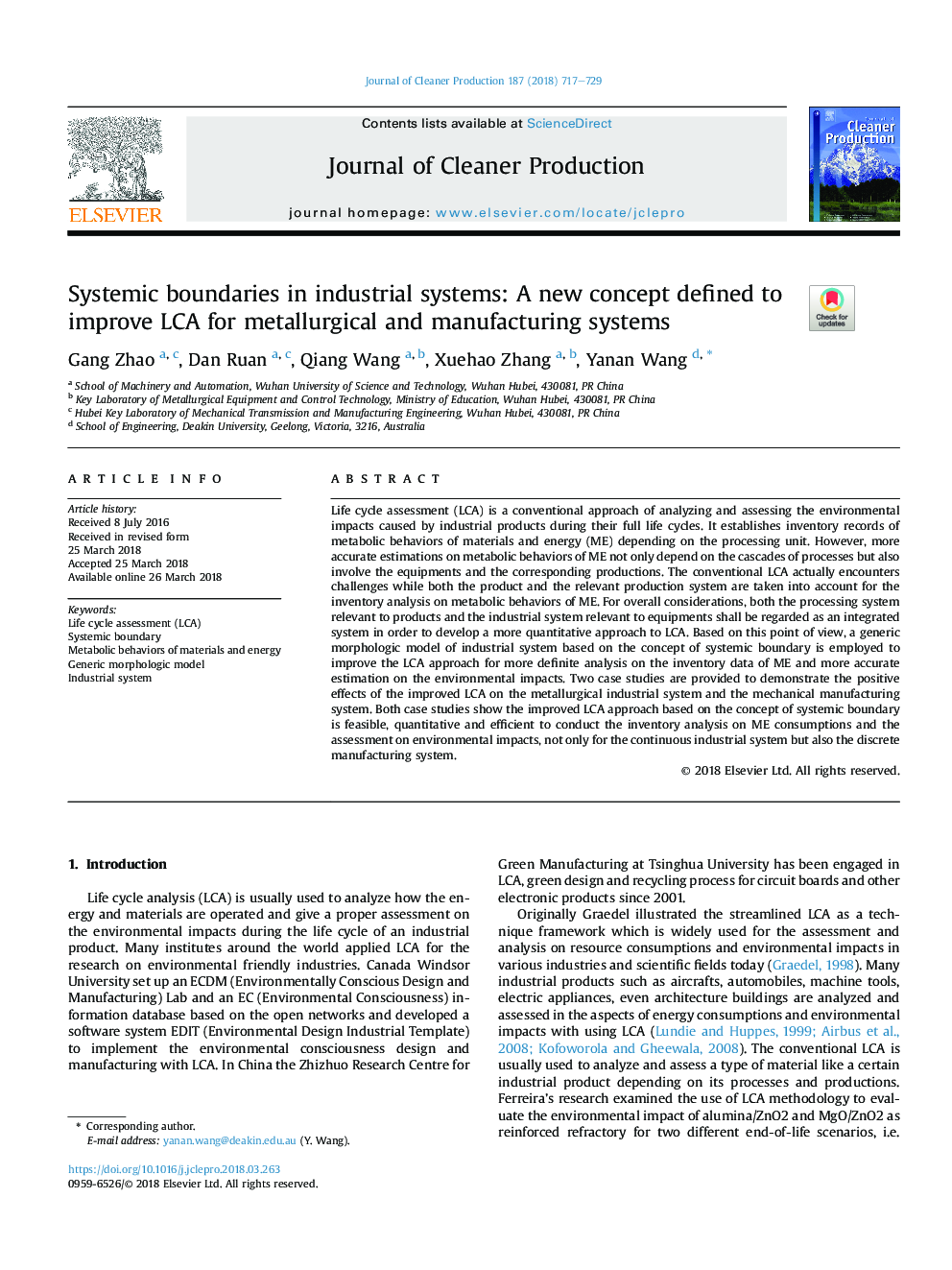| Article ID | Journal | Published Year | Pages | File Type |
|---|---|---|---|---|
| 8095986 | Journal of Cleaner Production | 2018 | 13 Pages |
Abstract
Life cycle assessment (LCA) is a conventional approach of analyzing and assessing the environmental impacts caused by industrial products during their full life cycles. It establishes inventory records of metabolic behaviors of materials and energy (ME) depending on the processing unit. However, more accurate estimations on metabolic behaviors of ME not only depend on the cascades of processes but also involve the equipments and the corresponding productions. The conventional LCA actually encounters challenges while both the product and the relevant production system are taken into account for the inventory analysis on metabolic behaviors of ME. For overall considerations, both the processing system relevant to products and the industrial system relevant to equipments shall be regarded as an integrated system in order to develop a more quantitative approach to LCA. Based on this point of view, a generic morphologic model of industrial system based on the concept of systemic boundary is employed to improve the LCA approach for more definite analysis on the inventory data of ME and more accurate estimation on the environmental impacts. Two case studies are provided to demonstrate the positive effects of the improved LCA on the metallurgical industrial system and the mechanical manufacturing system. Both case studies show the improved LCA approach based on the concept of systemic boundary is feasible, quantitative and efficient to conduct the inventory analysis on ME consumptions and the assessment on environmental impacts, not only for the continuous industrial system but also the discrete manufacturing system.
Related Topics
Physical Sciences and Engineering
Energy
Renewable Energy, Sustainability and the Environment
Authors
Gang Zhao, Dan Ruan, Qiang Wang, Xuehao Zhang, Yanan Wang,
